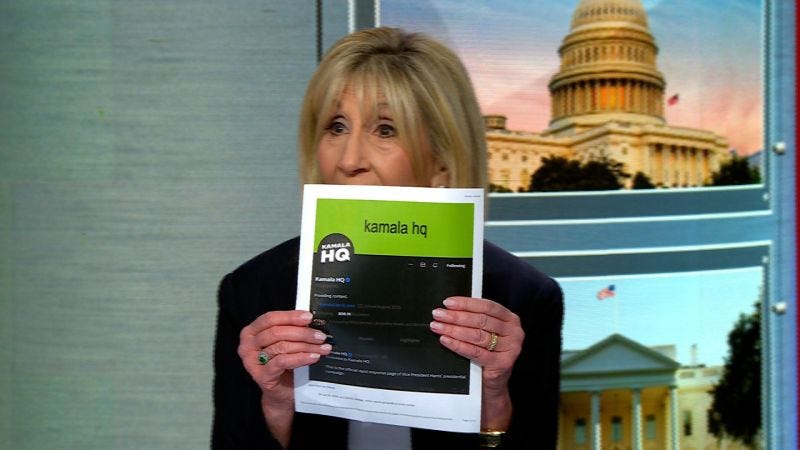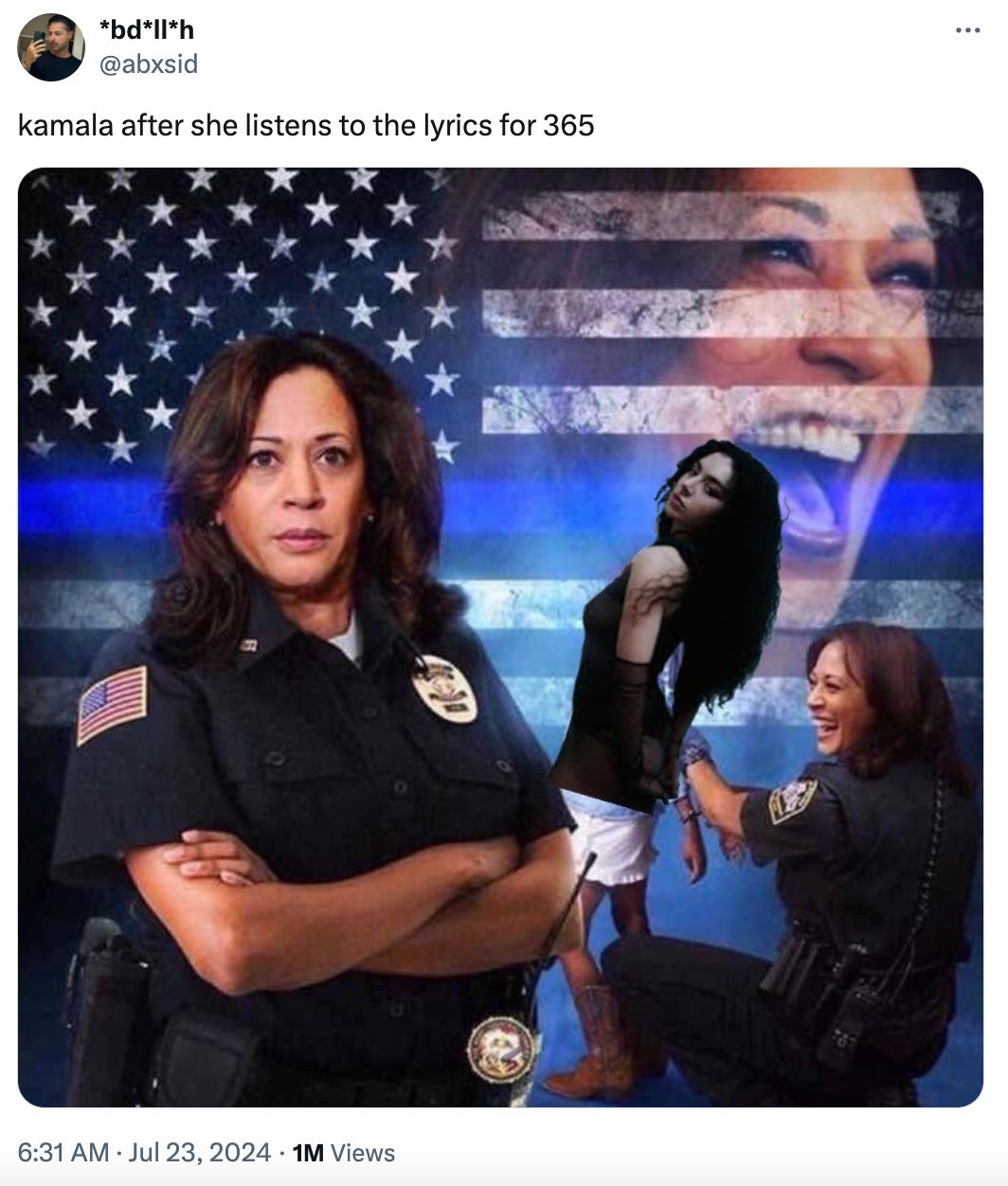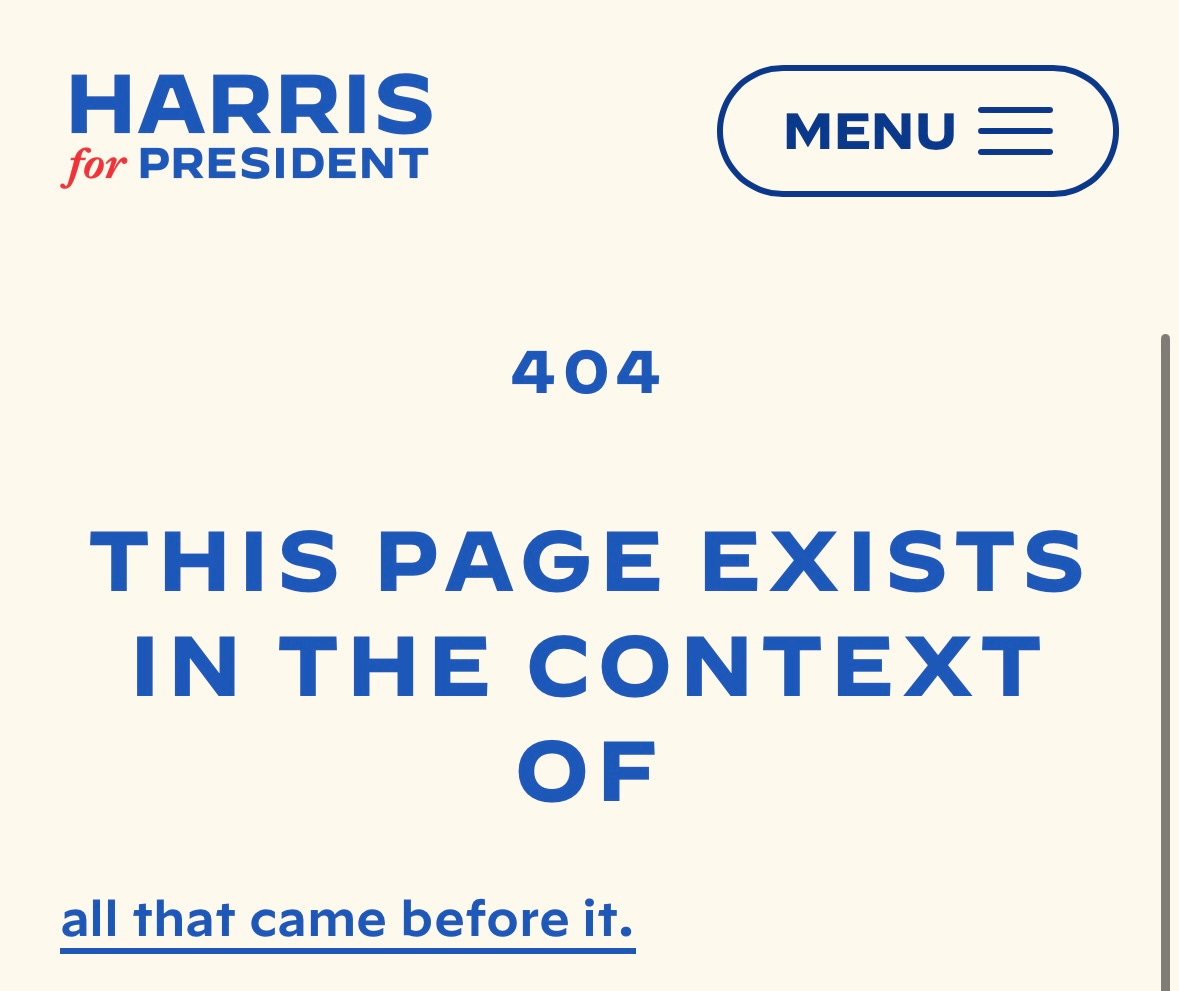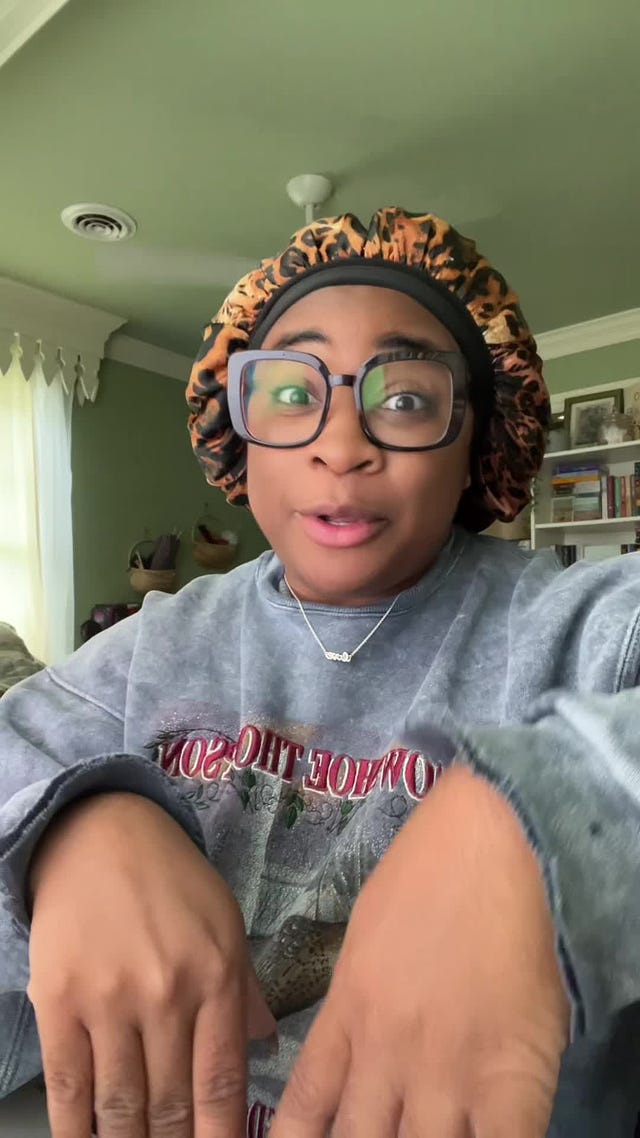Kamala Is Brat: A Brand Case Study in Being "Chronically Online"
This case study exists in the context.
On July 23rd, Special Correspondent Jamie Gangel faced the daunting task of explaining the “Kamala IS brat” lore to a panel of CNN journalists — and probably, their predominantly boomer audience.
Per her own acknowledgment, 69-year-old Gangel is not the right person for the job. But, she presses on, quoting the one and only Charli XCX to explain that ‘brat’ is “just that girl who is a little messy and likes to party. And maybe says some dumb things, sometimes.”

The segment became an instant classic. Gen Zs quickly took to social media to celebrate that ‘brat’ had made it to the mainstream (and yes, they also recognised how insane it all is).
X user @360_brat perfectly captured what everyone was thinking, writing, “If you told me 6 months ago that CNN would have a group of panelists discussing how Charli XCX’s 6th album is being a major voting influence in the 2024 US presidential election I’d laugh in your face.”
Whether the Harris ‘brat’ campaign will be a “major voting influence” and actually bring Gen Z to the polls is an important question. But it is also one that we don’t have the answer to just yet.
On paper, Harris isn’t the ideal candidate for Gen Z. She started her career as a prosecutor — later becoming the Attorney General of California — earning her nicknames like “top cop.” Considering Gen Z’s left-leaning political consciousness and skepticism towards the police, Harris’ background is not likely to sit well with this demographic (though they are ready and willing to poke fun at it).

At the same time, there’s no denying how the campaign’s embrace of ‘brat summer’ has reinvigorated young people. For the majority of the election cycle, Gen Z has felt hopeless— watching two geriatric white men battle it out for the presidency hasn’t exactly been inspiring. Not to mention, we’ve seen this matchup before.
It’s been widely reported that Biden (and by extension, the Biden-Harris campaign) has a “Gen Z problem,” which many saw as a troubling sign.
Not to get super political, but young people have been crucial to the Democratic Party’s success in recent years. They practically handed Obama his victory in 2008, with exit polls showing an unprecedented majority of first-time voters (69%) and voters under 30 (66%) backing the Democratic ticket. Though young voters made up the lowest percentage of the national electorate, their Democratic tilt secured Obama the win in key swing states. In 2020, it was a similar story, with 59% of new voters under 30 supporting Biden.
But, this year, as the campaign pressed on and the discussion about the President’s age took over, the Biden-Harris campaign started losing its edge.
“In multiple polls, startling numbers of young voters, especially men, were distancing themselves from the Democrats. Biden’s Gen Z advantage over Trump shrank to a single-digit margin,” E. Tammy Kim writes for The New Yorker.
It was clear they had to do something to get young people back on board.
Kamala brat-coded fan cams had been popping up across X and TikTok for weeks at this point. The meme started picking up traction after the first presidential debate, as pressure mounted on President Biden to step down as the Democratic nominee. A few fan-favourite quotes emerged, with “You think you just fell out of a coconut tree?” among them.
Soon, the Harris campaign decided to lean in and use this trend to its advantage.
The bio across all of Kamala HQ's social media accounts now reads “Providing Context,” a nod to Harris’ iconic quote. Even the 404 Not Found page on Harris’ website includes: “This page exists in the context of all that came before it.” And we haven’t even touched on the campaign’s TikTok, which hit the ground running by posting original fan edits.
It’s not unprecedented for pop culture moments to coincide with politics. During the 2016 election, for instance, Hillary Clinton tried to capitalise on the Pokémon Go craze, telling her audience at a rally that she was figuring out how to get “Pokémon Go to the polls.” Needless to say, it didn’t really land.
But we haven’t seen a political campaign tap into chronically online culture quite like Kamala HQ.
Over the past few years, mainstream pop culture and internet culture have become practically interchangeable, with traditional mastheads covering creators and influencers making appearances at big events like the Met Gala. By this logic, it was only a matter of time before the chronically online lore made its way into politics. And so far, it’s paying off.
As reported by Catherine Kim for Politico, “Kamala HQ — which was formerly Biden HQ before its rebranding on Sunday — has amassed over 40 percent of the likes the account has ever received in just three days, despite the account having been active since February for Biden’s campaign.”
The content Kamala HQ is putting out shows that the team isn’t just trying to understand the zeitgeist— they’re part of it.
By using niche audios and doing trends correctly, they’re engaging with Gen Z’s ironic and self-aware humour and are fully immersed in chronically online culture. Unlike other campaigns that mistakenly believe celebrity endorsements alone will spark enthusiasm, Kamala HQ is embedding itself in the spaces where Gen Z creates and interacts — allowing them to connect with a generation that often feels disillusioned and hard to reach.
“She’s the first candidate in years (ever?) to treat young ppl as a serious and important voting demographic,” one TikTok user named Emma writes in a video that has since amassed almost 1 million views. “Incorporating Gen Z culture into her marketing campaign is not only very brat, it also validates the importance of young voters as a population worth marketing to.”
To an outsider (like the CNN panelists), the bratification of Kamala Harris might seem puzzling. But whether you get it or not, the response to the campaign highlights just how much internet culture and chronically online humour drive Gen Z. While it might not win Harris the election (and honestly, it shouldn’t— people should base their political decisions on policy, not memes), it has achieved what often seems impossible: re-engaging young people and bringing them back into the conversation.







